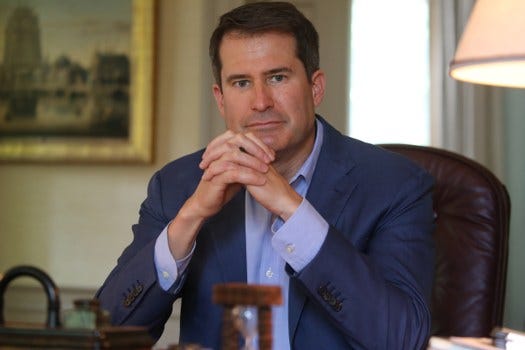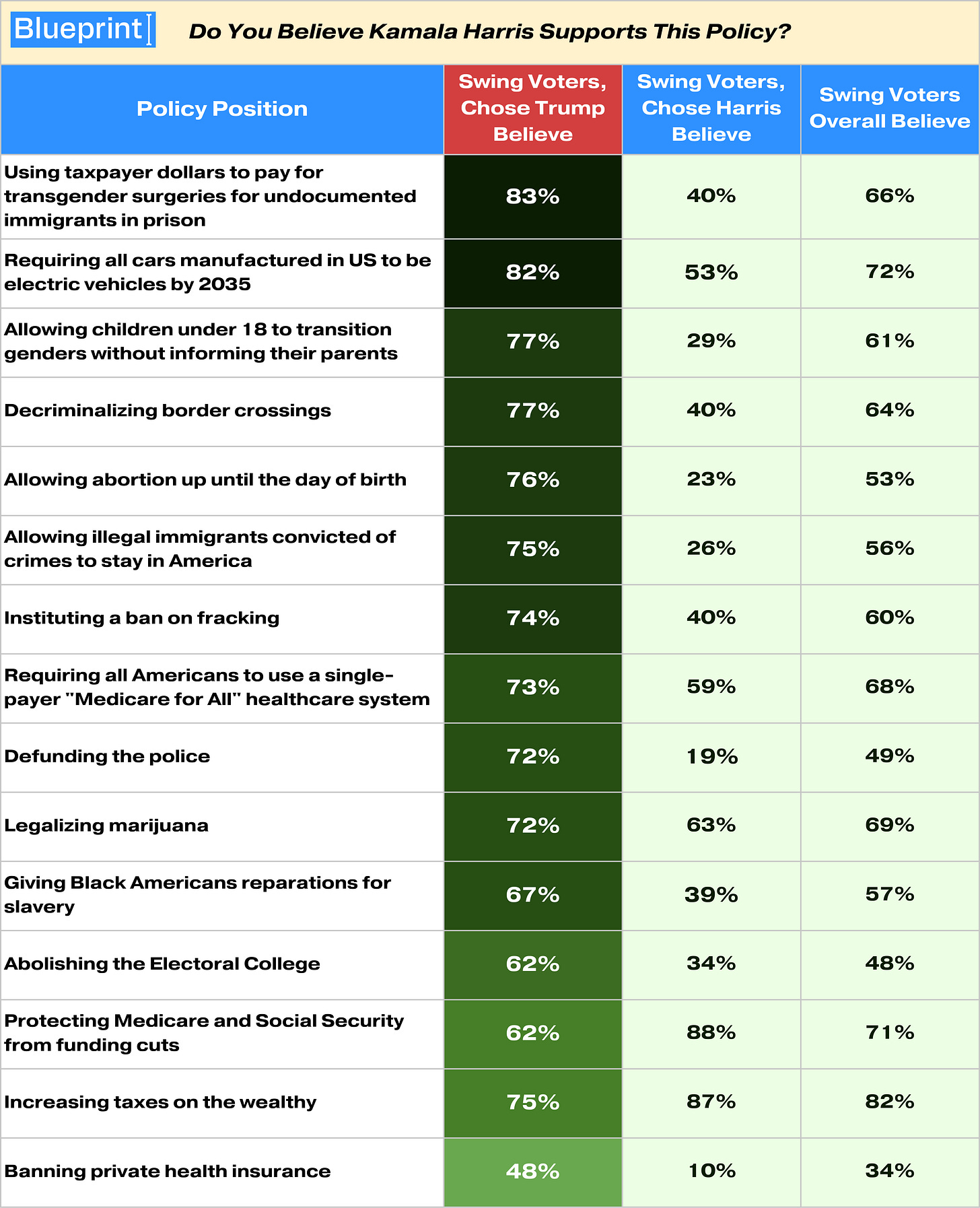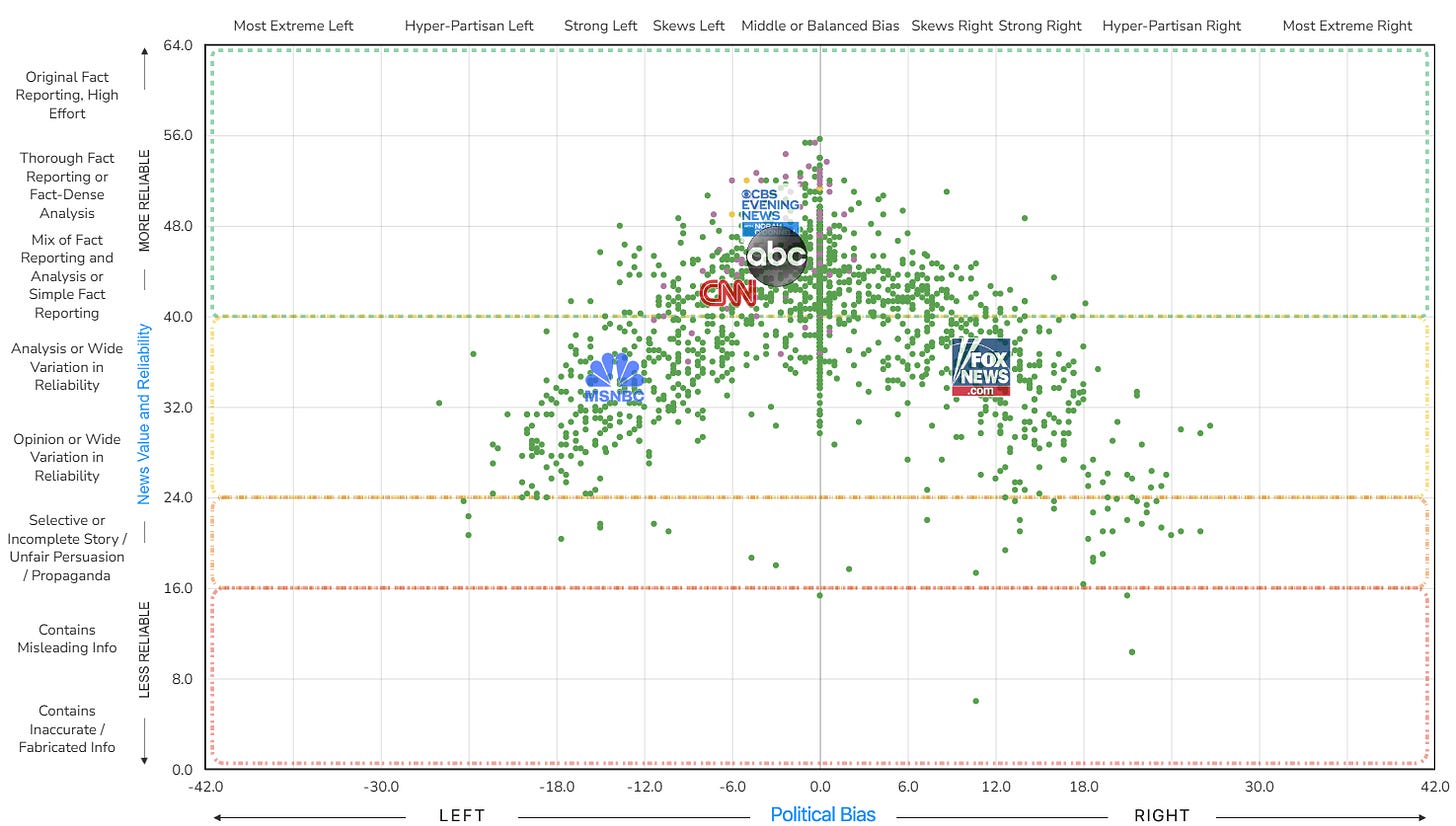Why Liberals Should Spend the Next Two Years Punching Left
A case for infighting

In economics, there’s this idea called opportunity cost. You probably already know it, so I’ll state it really simply: opportunity cost is what you lose by doing one thing instead of another.
Right now, I think the main instinct of liberals is to try to bear witness to the absolute fucking insanity occurring at the national level. And, yes, there is an obvious car crash appeal to watching an idiotic Kremlin apologist like Tulsi Gabbard ascend to the head of American intelligence.
But the truth is, there is almost nothing to be gained by doing that, apart perhaps from an aneurysm. For one thing, we were so completely and utterly destroyed at the national level, that there’s basically nothing Democrats can do until the midterms. On the other is what we miss out on the opportunity to do, which I think is counterintuitive in the face of an incoming far-right regime, but very important: that is to reclaim local governance from the far left.
Obviously nobody wants infighting in a time like this. But the truth is, we have lost to Donald fucking Trump twice now-and once, we squeaked by thanks to a pandemic. At this point, we are at the tail-end of a decade-long wakeup call. If we don’t answer it now, we deserve the consequences. It is time to address the elephant in the room.
Why We Lost
As the dust settles on the 2024 presidential race, a few aspects of the narrative have changed and solidified:
The election actually was close. Contrary to my first impressions on the morning after the election, the major headwinds of inflation and immigration, while certainly important, proved not to be overwhelming. As we reach the final tally, the popular vote has narrowed quite a bit, and it now looks like Trump will pull off a little under a 3 million vote lead.
Of course, Harris would have needed to make up a wider difference than that to win the Electoral College, but the point is, this was not a crushing defeat, at least not in terms of how many people wanted Harris to be president rather than Trump. And that means both that there’s room for hope, and that there’s room to get very very mad at whoever is most to blame for fucking this up for us, since the closer the margin, the more each individual fuck-up contributes to the result.
We have a pretty good idea of what doesn’t explain why Harris lost. I can’t recommend this analysis of false election narratives by Musa Al-Gharbi enough. Racism and sexism are out: Harris only held the ground Biden held in 2020 with white men, and lost voter share with literally every other group, including women. Harris had more money. Harris had better ground game. It’s not that none of these things mattered at all; they just didn’t matter enough to prevent a red wave that stretched across almost every district in the country. And even with 100% of the third party vote going to Harris, that red wave still would have materialized.
We also have a few consistent explanations of why she did lose: In general, the exit polling comes down to three major gripes with Democrats: the economy, immigration, and cultural issues.
Immediately after the election, this chart from Blueprint 2024 started making the rounds on social media:
Now, a lot of Democrats are insisting that the economy and immigration are the only real issues, that they were basically out of our control, and that anyone who suggests identity politics played a role are just trying to grind their ideological axe. But this survey suggested it really did matter: on this whole chart, liberal preoccupation with cultural issues was the single biggest metric against Harris with a specific category-swing voters who went to Trump-and the third biggest reason cited against Harris overall. A more detailed analysis of the swing voters who picked Trump from the same survey found the following results:
These voters were convinced, in other words, that Harris was far, far more progressive than she actually was. But you can’t entirely blame them: the topline policy, gender transition surgeries for undocumented immigrants in prison, really is a thing she endorsed, albeit way back in 2019. Likewise for a fracking ban, another policy she reversed her position on-a now fairly notorious ACLU questionnaire she filled out during that campaign reveals that her positions don’t seem too far off from what voters believed. Either they didn’t see the later pivot to the center in 2024, or they simply didn’t believe it. Can you really blame them?
Now, it is true that 2019-2020 was a crazy time, and everyone who wanted to win a primary in the Democratic Party had to push their platforms as far left as they could stomach. But even as the national party has pulled back to the center, the perception of them by the public seems to remain stubbornly in the George Floyd era.
Of course, a major part of this is the media. While anti-establishment types love to harp about the liberal mainstream media, they tend to conveniently ignore that FOX, which is about as right-leaning as MSNBC is left-leaning, is by far the largest mainstream news network (as they are proud to tell you.)
Over and above the edge the right has in mainstream media, it has come to dominate alternative media-podcasts, Youtube, streaming services, etc. And on top of that, we also need to consider the active role Elon Musk has taken to use X (formerly known as Twitter) as a vehicle to amplify right-wing messaging, especially when that messaging is coming from him directly. A September 2024 Pew survey found that people who get their news from social media (18%) are increasingly gaining on those who use news sites (23%).
Just to give a sense of the scale of this, Joe Rogan’s interview with Donald Trump is currently sitting at 50 million views on Youtube, dwarfed only by his 2018 interview with Elon Musk (68 million views). This is not counting downloads of the interview on Spotify. For a sense of proportion, the combined primetime viewership of FOX, CNN, and MSNBC on a given day is about 5 million. By comparison, the average daily viewership of Rogan’s Trump interview since it was released works out to about 2.4 million views per day. In other words, this one podcast got about half the primetime viewership of three mainstream media networks combined-more than that in the period prior to the election. Now consider the added role of right-leaning podcasts and alternative media networks like Tucker Carlson, All In, the Daily Wire, Impaulsive, and on and on. The point is, alternative media really, really matters now, and it increasingly leans MAGA.
But it’s not enough to just say “the media leans right, that’s why people thought the Democrats were so much more progressive than they actually are.” Joe Rogan, for example, also had Pennsylvania Senator John Fetterman, a relatively moderate Democrat, on around the same time as Trump-although Rogan was notably much tougher in his questioning, and it doesn’t seem entirely coincidental that he picked the one Senate Democrat who happens to have a speech impediment due to a stroke. But he also tried, and failed, to have Harris on as well. We now know why that never materialized, due to a report in the Financial Times: the Harris campaign feared progressive backlash, and indeed there was progressive backlash from within the campaign itself. From the FT piece:
The talks faltered because of concerns at how the interview would be perceived within the Democratic party, said Jennifer Palmieri, a senior adviser to Harris’s husband, Doug Emhoff.
“There was a backlash with some of our progressive staff that didn’t want her to be on it, and how there would be a backlash,” Palmieri said on Wednesday.
The point is not that an interview with Rogan would have helped Harris’s campaign. It may have, or it may have been a disaster. The point is that the option wasn’t even really open to her, expecting the same internal revolt Bernie Sanders received when he went on Rogan’s program in 2020, and when he touted Rogan’s endorsement on social media.
Think about that: Joe Rogan, already an outsized influence on American culture, endorsed the most progressive candidate in the Democratic primary just four years ago, and the progressive wing of the party rejected it. Not only that, it condemned Sanders for accepting it! Now, four years later, Rogan is a Trump supporter. Is that entirely a coincidence? Can you think of a more self-immolating strategy than to reject the endorsement of the largest alt-media figure in American culture?
I’m not making any new points here. I’m largely reiterating what has already been said by figures as diverse as Ezra Klein and Sam Harris. These two were once clearly on opposite sides of the culture war at the height of the racial reckoning, and anyone who remembers those conflicts should see their alignment on this issue as a bit of a bellwether.
But if progressive views are so unpopular, why do they remain so powerful within the Democratic Party? I believe the answer is to be found at the local level. Easily the biggest predictor of political progressivism (what often gets described as being “very liberal,” which I consider a category error we need to start calling out) is educational attainment. A 2023 survey of Harvard graduates shows that not only are they very progressive, but they overwhelmingly became more progressive over the course of their education:
Ivy League graduates are progressive, and they’re also wealthy, and wealthy people move to cities and their surrounding suburbs (not going to cite data for this one, I think this is common knowledge to anyone likely to find themselves reading this blog). And big surprise, states with Ivy Leagues and coastal cities like Massachusetts, New York, and California are all progressive bastions. Compare this to Colorado, a state with a Democratic governor who is both unusually popular, and far less subject to progressive whims-he openly identifies as a libertarian. It also happens to be the case that educated voters are much more likely to vote, which gives progressives an edge in midterm and local elections, but causes them to get crushed in national elections, when lower-propensity voters, who are less-educated and much more conservative, show up.
Why We Might Keep Losing
This is why, as Wally Nowinski recently pointed out on Noah Smith’s blog, Democrats do much better in midterms because lower voter turnout increasingly favors Democrats.
But unlike him, I’m not optimistic about this, because I know what that means: yes, Democrats do better with highly-educated voters, and those people vote more. But this really serves to exacerbate the problem, because of the kind of Democrat those voters are more likely to elect. That is to say, progressives, often with backgrounds in activism, who pass dumb policies that piss people off and make Democratic governance sound absolutely terrifying to the average voter. Josh Barro wrote an excellent piece after the election trying to give some perspective on why voters looking at New York and San Francisco might be skeptical of claims that Democrats are the moderate, sensible party, and I think we should listen. At the local level, Democratic politics has not moved on from 2020, even if the party at the national level has. We saw this in the immediate aftermath of the election, when MA House Representative Seth Moulton said in the New York Times:
“Democrats spend way too much time trying not to offend anyone rather than being brutally honest about the challenges many Americans face,” Mr. Moulton said. “I have two little girls, I don’t want them getting run over on a playing field by a male or formerly male athlete, but as a Democrat I’m supposed to be afraid to say that.”
This comment sparked an outcry within the state party: one of Moulton’s top aides resigned; the chair of the political science department at Tufts University attempted to cut ties with Moulton’s office and effectively forbid students from interning for him (the school ultimately backtracked); and as of last Monday, the state chair of the Democratic Party was refusing to answer his phone calls. This is not an exhaustive list.
How We Might Stop Losing
Moulton, to his great credit, retained his backbone and stuck to his comments. But the event should serve as a sign of the disconnect between the voters and the Democratic Party. I am not claiming that the Democratic Party needs to adopt a conservative stance on this or any other issue, but it needs to at least be permissible to take something other than the maximalist progressive stance on every social issue.
To get there will absolutely be ugly. It is not enough to merely avoid these questions: liberals need to aggressively distance themselves from bad ideas that have been allowed to become pervasive within the party, and dare their progressive constituency to vote against them for it. They need to stop apologizing, and stop mealy-mouthing their way through these discussions. That will involve a lot of vitriol, because unfortunately progressives, while a relatively small share of the electorate, are very loud, and having the conviction that everyone who disagrees with them is morally unclean, totally ruthless. But, in my experience, they are also lazy, easily distracted, and honestly not particularly bright. Most of them are in it to have a social club moreso than to advance a particular political goal. I think we just have to bite the bullet and display a bit of courage, and we’ll find we are mostly dealing with paper tigers. And I do believe voters will reward that.
I fear that if state-level elections continue to be dominated by candidates preferred by a small segment of highly-educated, affluent voters, the moderation the Democratic Party needs to experience will not translate to the state and local level, and voters will continue to associate Democratic governance with lawlessness, useless bureaucracy that mostly exists to pay itself, goofy elite cultural values, terrible social services despite high taxes, and left-wing radicalism. That will in turn continue to dog Democrats at the national level-even if they squeeze out victories, they will not be able to do so with convincing margins.
If we can’t turn that around, and come to voters in 2028 with a united party built around explicitly liberal, not progressive political principles (something akin to what Matt Yglesias outlined in his piece on Common Sense Democrats), I don’t think we can expect the much-anticipated return to political normalcy we were all hoping for on November 5th.







For the most part I agree, but I gotta say: Matt Yglesias and his "One Billion Americans" hyper-immigration plan is part of the problem.
Also his idea that climate change can be "managed" is delusional, nature cannot be bargained with. Unfortunately his sort of thinking is endemic among economists, political experts, and others who are used to dealing with the negotiable laws of men rather than the inviolable laws of nature, they think their expertise in economics and policy somehow gives them priority over the scientists even in scientific matters.